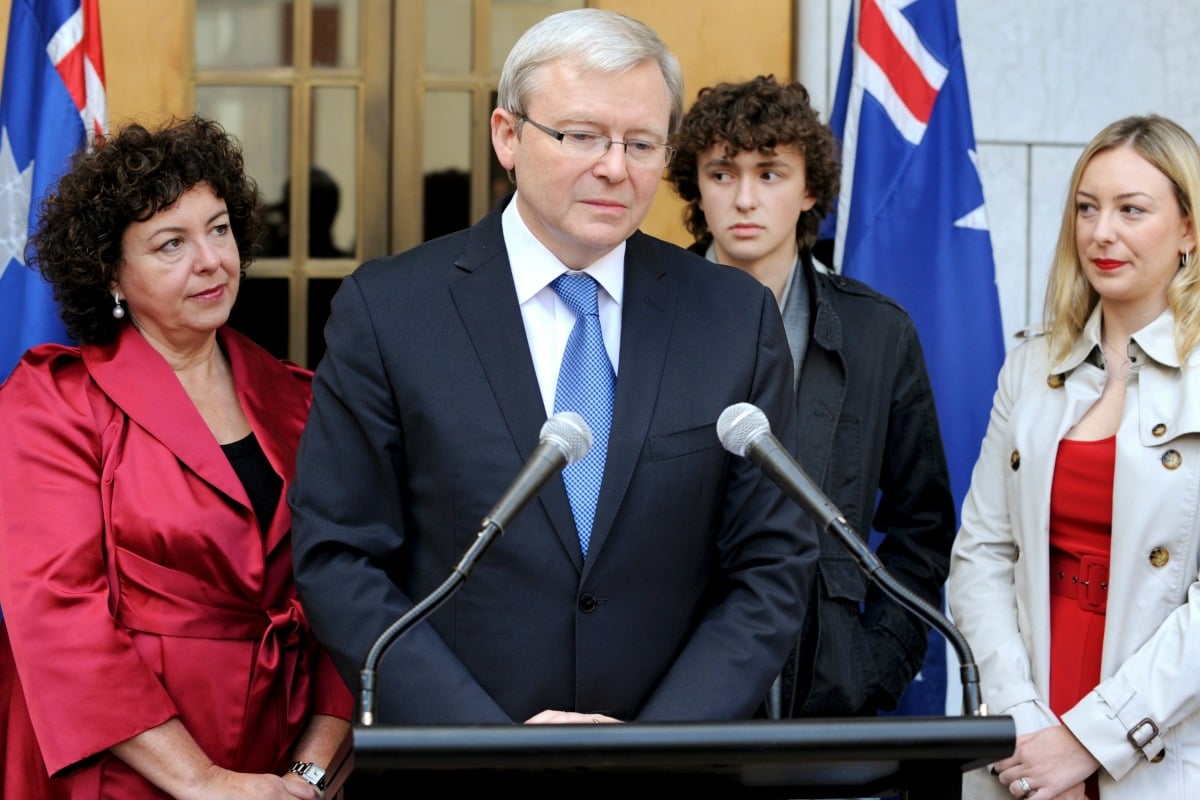
June 24, 2010. Most Australians would remember the scene that played out in the courtyard of Parliament House on that cold, Canberra day. Kevin Rudd, the first victim of what would become a cascade of back-door coups, fronted the media after being ousted from the country’s top job.
Flanked by his wife, Thérèse Rein, and their three children, a formidable and, some have argued, temperamental man stood blinking back tears, fighting against the lump in his throat as he eulogised his own Prime Ministership.
It’s a scene that’s played out three times since. Gillard. Abbott. Turnbull.
But while the political fallout from these swift and savage spills has been dissected in great detail in newspapers and across dinner tables, there’s another element to the fallout. The human element.
Speaking to Mia Freedman on Mamamia’s No Filter podcast, Kevin Rudd shared what happened after he walked away from the harsh light of the cameras that winter afternoon.
“It’s a very physical process,” the 61-year-old said. “The great reminder of political mortality are the cleaners. You know you’ve left office when suddenly cleaners arrive at your office to clear you out.
“In my case, after Gillard’s coup, she had her staff inspecting the office within an hour of the vote to work out who would go into which office – and this was before she was sworn in – and we were told we had to be out by the end of the day.”
To hear Mia and Kevin’s full chat, listen below…
His team.
By ‘we’, he means his own team. Forty three of them.
“All of these staff have lives. They have, in many cases, family, and they all lose their jobs. So Thérèse and myself then went into immediate counselling mode with 43 staff, many of whom don’t have somewhere else to go, and [we were] trying to support them into new employment,” he said.

Top Comments
Well at least the parliamentary perks and benefits not available to the rest of Australian society will be there to comfort him .
As an electorate we have a strong tendency to identify all the actual & supposed weaknesses and errors of those we have voted into power.
"of those WE have VOTED into POWER"....
As an electorate, we have been lazy voters for years, decades actually.
We still vote, as a mass, predominantly either on the promises given (and rarely fulfilled...), or the simplistic and ideological fear-mongering tactics. (Three Word Tony)
We do so often now, then sway like ferns in a mild wind, causing the short-sighted talking heads WE have VOTED in to PANIC on the daily popularity polls, to continually grasp for leadership changes or just blabber on about leadership changes...
Great sound bytes for the press, toxic for the country.
Far too many party droids, ideological drones, limited real-life exposure interns, staffers, union reps, lawyers & narrow-issue activists in Australian politics today.
And we vote them in.... Then complain about them. Then vote them in again, no matter how many promises are broken, how many lies are obfuscated.